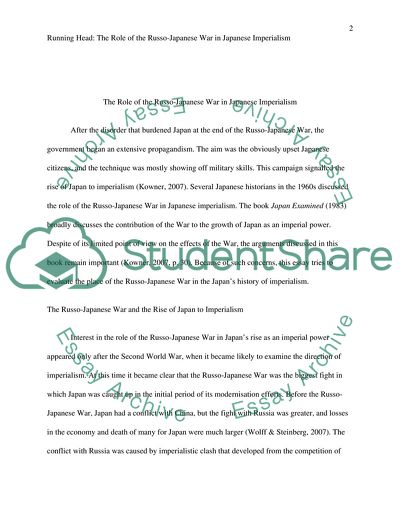Cite this document
(The Role of the Russo-Japanese War in Japanese Imperialism Essay Example | Topics and Well Written Essays - 1750 words, n.d.)
The Role of the Russo-Japanese War in Japanese Imperialism Essay Example | Topics and Well Written Essays - 1750 words. https://studentshare.org/history/1771929-nations-at-war
The Role of the Russo-Japanese War in Japanese Imperialism Essay Example | Topics and Well Written Essays - 1750 words. https://studentshare.org/history/1771929-nations-at-war
(The Role of the Russo-Japanese War in Japanese Imperialism Essay Example | Topics and Well Written Essays - 1750 Words)
The Role of the Russo-Japanese War in Japanese Imperialism Essay Example | Topics and Well Written Essays - 1750 Words. https://studentshare.org/history/1771929-nations-at-war.
The Role of the Russo-Japanese War in Japanese Imperialism Essay Example | Topics and Well Written Essays - 1750 Words. https://studentshare.org/history/1771929-nations-at-war.
“The Role of the Russo-Japanese War in Japanese Imperialism Essay Example | Topics and Well Written Essays - 1750 Words”. https://studentshare.org/history/1771929-nations-at-war.


